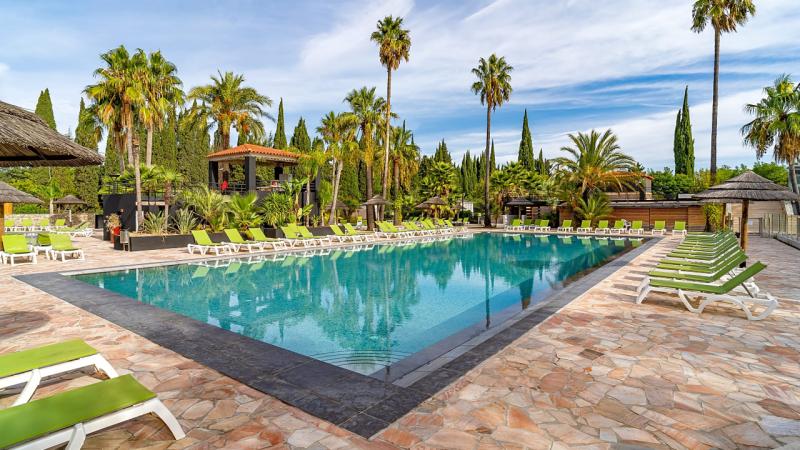Johanna Capoani, head of hospitality portfolio management at Swiss Life Asset Managers France, has identified a frustrating contradiction in the current market for hotels: “There’s never been a better time for hotels in Europe; operational metrics are off the charts,” she notes. “At the same time, we’re in a difficult environment for transactions. Interest rates are still rising and financial conditions are challenging. We are not seeing sufficient discounts for sales to happen.” But with all this operational outperformance, she notes, who is going to be discounting assets? “It’s a contradictory path at times but this is an exciting moment to be in hospitality,“ she adds.
Swiss Life Asset Managers, the asset management arm of the insurance giant, first structured its hospitality investment division a decade ago. “I joined Swiss Life Asset Managers France in 2013, and developed the hospitality competence centre,” Capoani underlines. “There was increasing demand from investors at that time for this asset class. Interest was driven by attractive returns from the tourism industry, long term growth prospects for the sector, and because investors were looking for a diversification play. It was clear that hotels could provide a steady income stream and opportunities for capital appreciation.”

Fast forward to 2023 and those characteristics have been supercharged by an electric post-pandemic environment, she notes. “The hotel business saw an incredible recovery in 2022, with Europe coming out on top globally in terms of tourism. The return of US tourism, the revenge travel dynamic, plus local events have all helped, and that’s even been without Asian travellers.” Boosting the case for France, Capoani mentions the upcoming Rugby World Cup starting in September 2023 plus the Olympic and Paralympic Games of 2024. “We are practically back to 2019 numbers in terms of occupation rates, and a two-figure percentage point above 2022 in terms of average daily prices.”
Post-pandemic variations
But the current environment isn’t simply a reset to 2019. “There are some very interesting drivers and differentiating factors post-Covid,” she notes. “Hotel real estate is one of the only asset classes maintaining stable valuations, as well as having returned to pre-pandemic values.” While the digitalisation trend has had some impact on business travel, the rise of bleisure means that hotels no longer have to position for one type of clientele. “Whereas revenues pre-pandemic were often driven by high value business travel, it’s largely about leisure today, and the blending of the traveller types. Remote working trends make it so easy for professionals to extend their business stay to enjoy some leisure time.” She adds: “The only exception to the positive story here is Germany, where the market was so reliant on business travel and is therefore taking longer to bounce back.”

“Another interesting trend is the changing relationship between distances and the scale of value. There’s a tremendous focus on local and domestic travel, which is fuelling some of our strategies.”
Swiss Life Asset Managers France mainly buys hospitality for a range of core and core plus funds, tailoring its approach for different investor clients. The firm currently has two professional funds dedicated to hotels, both of which are core funds. A third fund active in the sector is a pan-European flagship fund. Just as its previous iteration focused on France, Germany and Italy, this fund is pursuing compelling trends in Europe’s main markets.
Happy campers
Adds Capoani: “We also developed a very interesting fund in the upscale camping segment, with a focus on France.” After the United States, she says, France is the second biggest market globally for camping, fuelled by strong domestic volumes, which are responsible for up to 70% of occupational metrics. This professional fund has been buying three-star campsites across the country and renovating them into five-star “glamping” products with incredible success rates. It’s a segment which offers striking opportunities for ESG alignment, she says, which is now compulsory in the institutional arena. “As well as having impressive sustainability aspects, glamping is a strong lifestyle trend,” she notes. “It’s done so well that we’re thinking of launching another fund in this segment.”

Leading on from bleisure, Capoani thinks that lifestyle-focused properties are here to stay. “Just as boundaries between leisure and business travel have become more porous, hotel groups are looking to create spaces that can host workers during the day, and F&B at night. All the operators are creating lifestyle brands that answer this demand, that are overall less standardised and impersonal, and much more individual; the hotel as a home, if you like.”
Following the trends
On top of this, she identifies other wining trends. “Wellness destinations are very interesting, as are properties backed by technology. I also believe strongly in targeting medium sized hotels, between 100 and 200 rooms, because I think that’s where people want to stay.” She sees safety in city centre hotels in the three- and four-star category, capable of capturing a range of travellers year-round.
In Swiss Life Asset Managers Hospitality’s investment approach, there is still a note of caution despite the current boom time. Rising interest rates and financing conditions remain a significant ‘fly in the ointment’ keeping deals sluggish. Is she also worried about a future global health incident, a second pandemic? Conversely, not really. “Hospitality is a cyclical business, and always has been. It’s an asset class you need to approach with a long-term investment horizon. But having been through Covid was the ultimate crash tes. Most hotels survived, practically all the operators survived. So, I think we have the proof that this asset class can absorb huge shocks.”
Going forward, the metrics look compelling. “Hotels have coped well with significant inflation, which has been absorbed in rising average daily rates. I expect those to climb further in the coming months and to see a fantastic summer. In my opinion, the industry is set for a solid two years ahead, and 2023 is likely to hit historic highs,” Capoani concludes.